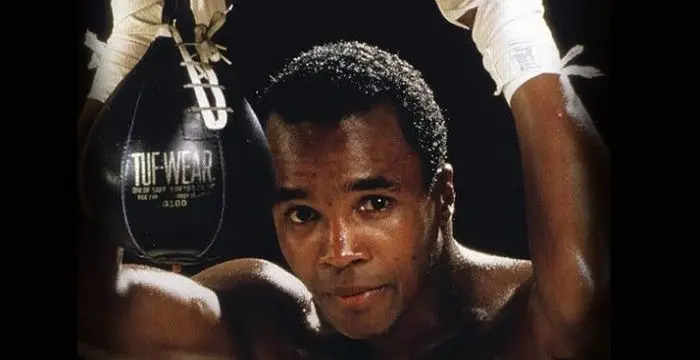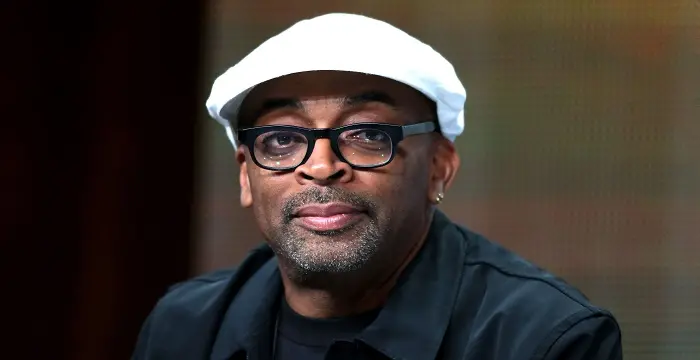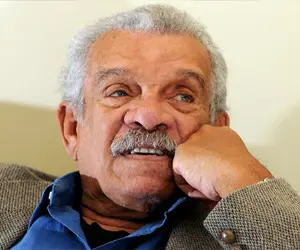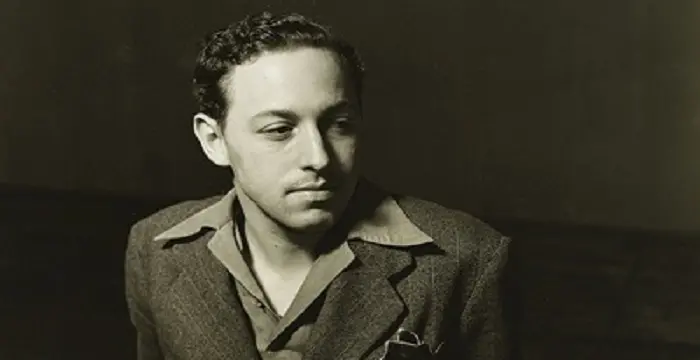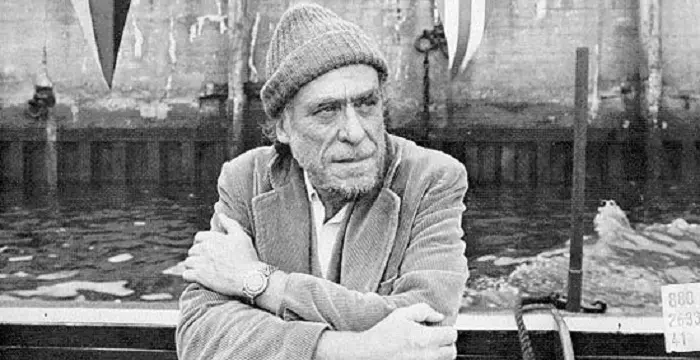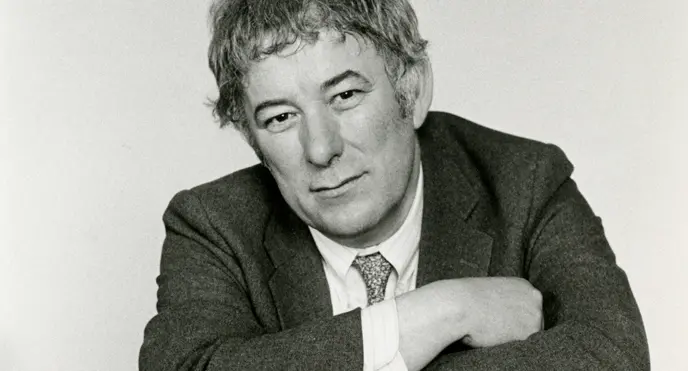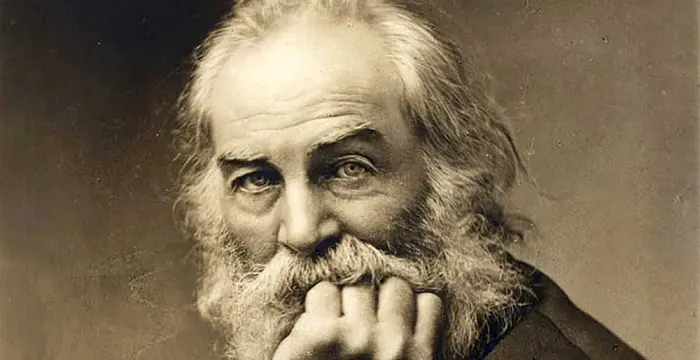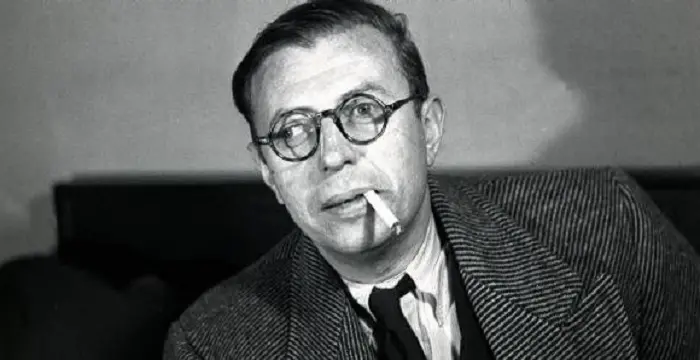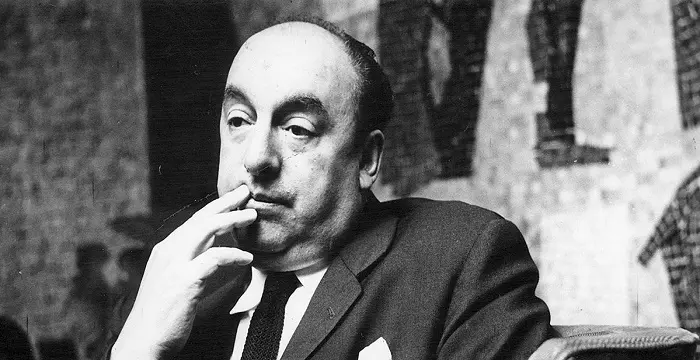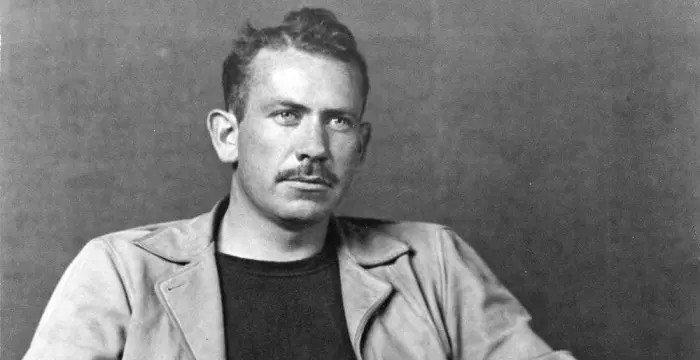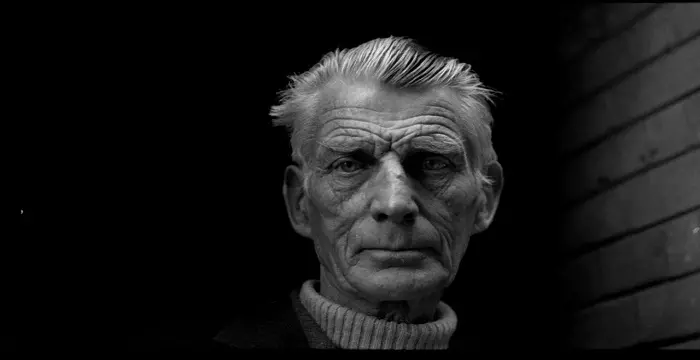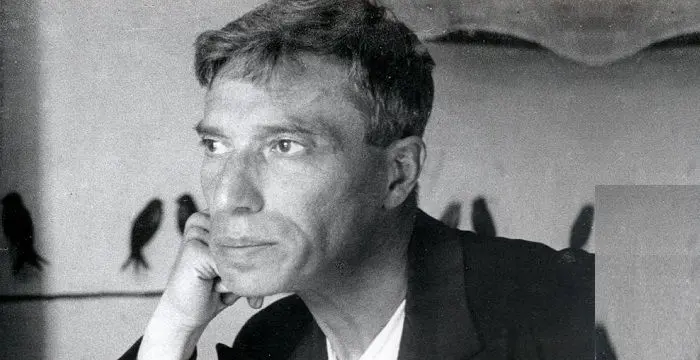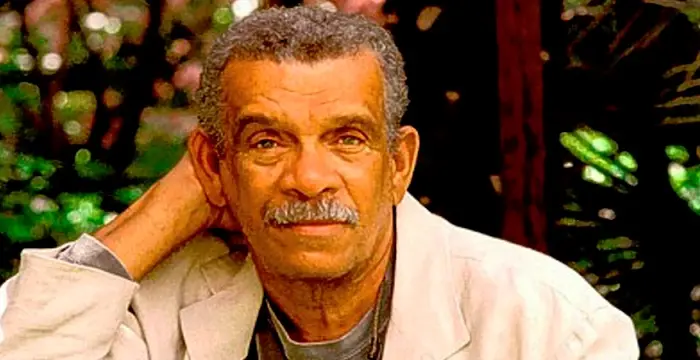
Derek Walcott - African American Men, Family and Personal Life
Derek Walcott's Personal Details
Derek Walcott is a West Indian poet and playwright, who won the 1992 Nobel Prize in Literature
| Information | Detail |
|---|---|
| Birthday | January 23, 1930 |
| Nationality | Saint Lucian |
| Famous | Nobel Laureates In Literature, Writers, Poets, African American Men |
| Spouses | Margaret Ruth Maillard (m. 1962), Norline Metivier (m. 1982), Fay Moston (m. 1954–1959) |
| Siblings | Pamela Walcott |
| Known as | Sir Derek Alton Walcott |
| Childrens | Anna Walcott, Elizabeth Walcott, Peter Walcott |
| Birth Place | Castries, Saint Lucia |
| Gender | Male |
| Father | Warwick Walcott |
| Mother | Alix Walcott |
| Sun Sign | Aquarius |
| Born in | Castries, Saint Lucia |
| Famous as | Poet |
// Famous African American Men
Snoop Dogg
Snoop Dogg is an American rapper and actor who emerged as one of the best-known figures in gangsta rap during the 1990s. This biography of Snoop Dogg provides detailed information about his childhood, life, achievements, works & timeline
Sugar Ray Leonard
Sugar Ray Leonard, is a legendary boxer, who won world titles in five different weight classes. This biography provides detailed information about his childhood, life, works, achievements and timeline.
Spike Lee
Spike Lee is an Emmy Award winning film director and actor known for his films that deal with controversial subjects like racism and politics. This biography of Spike Lee provides detailed information about his life, achievements, works & timeline.
Derek Walcott's photo
Who is Derek Walcott?
Derek Walcott is a West Indian poet and playwright, who won the 1992 Nobel Prize in Literature for his depiction of Caribbean life and culture in the post-colonial era. Born into a family of English, Dutch and African descent and fed from childhood with English classics, he has inherited the richness of mixed cultures and this he has depicted in his vast oeuvre of plays and poems. Initially trained as a painter, he self-published his first book of poems at the age of eighteen and gained international acclaim as a poet by the age of thirty-two. Although he mostly wrote on the vivid landscape and culture of his homeland, many of his works also express his isolation, resulting from a conflict between his western education and the black folk traditions in which he had been nurtured from childhood. He has been equally active as a playwright, producing around thirty plays. He was also a successful academician, teaching at various American universities. In spite of his success, both his professional and domestic lives have been quite stormy and he was short of money till he received the Nobel Prize.
// Famous Writers
Joyce Meyer
Joyce Meyer is a Christian author and speaker. This biography provides detailed information about her childhood, life, achievements, works & timeline
Temple Grandin
Temple Grandin is a well-known American writer, autistic activist and animal expert. This biography profiles her childhood, life, achievements, career and timeline
Tennessee Williams
Tennessee Williams was one of the greatest playwrights of the 20th century. This biography of Tennessee Williams provides detailed information about his childhood, life, achievements, works and timeline.
Childhood & Early Years
Derek Alton Walcott was born on January 23, 1930 in the colonial city of Castries, located in the eastern Caribbean island of St. Lucia into a family of mixed descent. While both his grandfathers were whites, both his grandmothers were descendants of African slaves, brought to the island centuries ago.
His father, Warwick Walcott, was a civil servant by profession, but by avocation he was a watercolorist and a poet. He was of bohemian nature and died at age 31 from mastoiditis. His mother, Alix Walcott, was a teacher at the local Methodist school and raised their three children singlehandedly.
Apart from a twin brother Roderick, who would eventually become an established playwright, Derek had an elder sister named Pamela. They grew up in a house full of books, paintings and recorded music and spoke an English-French patois.
At that time, the territory was under British dominance and the official language was English. However, signs of earlier French rule were still there and majority of the population was Roman Catholics as established by the French. Being Methodist, young Derek often felt like an outsider in his own land.
As a young boy, he would often go out to watch the poor people living in shanties; some of whom would later appear in his autobiographical poem, ‘Another Life’. He also found the sea, with its different moods and legends, fishermen and schooners, and sounds of the sea, very fascinating.
In time, Derek was admitted to St. Mary’s College, which at that time was the only secondary school in the city. Here he began to study English and soon became fascinated by English poems. Soon, like many of his generation, he too began to consider English his own language.
His mother, Alix, was also very fond of English classics, especially Shakespeare and would often read them out to her children. In this way, an appreciation for poetry and drama began to be instilled in him early in his life.
Although he took up English as his language, he was equally conscious about British imperialism and its policies on slavery in the previous centuries. Therefore, he grew an ambivalent attitude, which would one day influence his writings.
Like his father, Derek also had an aptitude for painting and started being trained in the art by Harold Simmons, the famed artist, who was also a historian, archeologist, and expert in local folklore. Mentored by him, young Derek learned to appreciate his heritage.
He began to write poetry early in his life, having his first poem published at the age of fourteen in a local periodical. Titled ‘1944’, it was a Miltonic religious poem consisting of forty-four lines of blank verse. Although the Catholic clergy condemned it as blasphemous, he did not stop.
By 1948, he had a number of poems ready for publication; but there was no publisher to publish them. Undeterred, he borrowed $200 from his mother and self-published his first collection of poems, titled ’25 Poems’. He then sold the copies at the street corner and paid back the amount.
In 1949, Derek Walcott published his second book, ‘Epitaph for the Young: XII Cantos’. By now, he had also written two dramas, ‘Henri Christophe: A Chronicle’ and ‘Henri Dernier’. The later was broadcast over radio in 1950. But tired of attacks by the clergy, he now decided to leave the island.
In 1950, he moved to Kingston, Jamaica, where he enrolled at the University College of West Indies on a Colonial Development and Welfare scholarship. The institution, though established only two years ago, had already started attracting students from all parts of Caribbean and Derek began to flourish in its congenial environment.
Coming from a small town, he also found Kingston to be an amazing place. There were good theatres, fine art galleries and gifted poets, writers and artists, with whom he loved to interact and whom he later came to know well.
In Kingston, along with his university education, he pursued his literary ambition and wrote a number of poems and plays. In addition, he also published poetry, art criticism, and essays in different periodicals like ‘Trinidad Guardian’ and ‘Jamaica’s Public Opinion.’ In 1953, he received his bachelor’s degree.
Early Struggle
In 1953, Derek Walcott began his career as a theatre and art critic in Trinidad. But some biographers are of the opinion that he first returned to Castries, where he taught at St. Mary’s College for a year, before moving to Trinidad.
Whichever version is true, it is universally accepted that by 1954, he was well-established at Trinidad because in the mid-1950s he had two of his plays. ‘The Sea at Dauphin’ and ‘Ione’ premiered here. Soon he decided to establish a resident theatre project on the island.
In 1958, on earning a Rockefeller Foundation grant with his play, ‘Drums and Colours’ Walcott moved to New York City with the aim of working with off-Broadway directors. He wanted to learn the skills that would help him to establish a repertory group in Trinidad. But he was sorely disappointed.
He soon realized that he wanted to create something different and neither the Off-Broadway nor the Broadway was the right model for that. Therefore, he returned to Trinidad and in 1959, founded Trinidad Theatre Workshop along with his brother Roderick in Port of Spain, the capital city of the island.
Derek Walcott remained the founder director of the Workshop till 1971. Concurrently, from 1960 to 1968, he also worked as a reporter of ‘Trinidad Guardian’ and covered local news for the paper.
At the same time, he continued to explore the history as well as myths, rituals and even the superstitions prevalent in the Caribbean and wrote a number of plays on these subjects, which were staged by his group. He also wrote a number of poems; but the readership was largely confined to Caribbean.
International Acclaim
In 1962, Derek Walcott’s poems gained the attention of the editors at the British publisher Jonathan Cape’s publication house. In the same year, the publisher released Walcott’s first major collection of poems, ‘In a Green Night: Poems 1948–1960’. The book was well received and very soon he was established as a poet.
One of his admirers was poet Robert Lowell, who came to Trinidad to meet Walcott. It was largely through his effort that publisher Farrar, Straus and Giroux (FSG) signed him as their new writer.
His subsequent publications, ‘Selected Poems’ (1964), ‘The Castaway’ (1965), and ‘The Gulf’ (1969), were hailed for their rich language and complicated rhyme. But more importantly, they expressed his feelings of being caught between his Caribbean traditions as well as beliefs and the European culture in which he had been oriented.
From the early 1970s, Walcott started spending more time in the USA, teaching creative writing at well-known universities like Harvard and Columbia. Concurrently, he continued publishing books like ‘Dream on Monkey Mountain and Other Plays’ (1970), ‘The Gulf’ (1970),’ Another Life’ (1973), ‘Sea Grapes’ (1976) , and ‘The Star-Apple Kingdom’ (1979).
In 1981, he joined Boston University, where he taught literature and creative writing. In the same year, he established Boston Playwrights' Theatre to promote new plays. Concurrently, he continued to publish poems and plays on a regular basis. He retired from the university in 2007.
Among the works published in 1980s, ‘The Fortunate Traveller’ (1981) and ‘Midsummer’ (1984) explore his situation as a black writer in America. However, ‘Omeros’, published in 1990, is said to be his best.
In 2009, Walcott applied for the post of Oxford Professor of Poetry, but withdrew his candidature after an allegation of sexual harassment was raised against him. Instead, he took up the position of scholar-in-residence at the University of Alberta Canada, for three years.
Concurrently from 2010, he became the Visiting Professor of Poetry at the University of Essex. Also in the same year, he had his ‘White Egret’, a book of poems, published. This is his last major publication.
Major Works
‘Omeros’, a book-length epic poem, containing a total of sixty-four chapters divided into seven "books", is probably Derek Walcott’s most talked about work. Although the main narrative of the poem takes place in his native island St. Lucia, it loosely echoes Homer’s epic poem ‘Iliad’.
In the poem, fishermen Achilles and Hector compete with each other over the love of Helen, a housemaid. The cover for the book, which depicts some of the main characters in the sea, riding a boat, was painted by Walcott himself.
Awards & Achievements
In 1971 he received Obie Award for Best Foreign Play for ‘Dream on Monkey Mountain’.
In 1972, Walcott was elected an Officer of the Order of the British Empire.
In 1988, he received Queen's Gold Medal for Poetry.
In 1990, he received Arts Council of Wales International Writers Prize and also W. H. Smith Literary Award, the later for his epic poem, ‘Omeros.’
In 1992, Derek Walcott received the Nobel Prize in Literature "for a poetic oeuvre of great luminosity, sustained by a historical vision, the outcome of a multicultural commitment".
In 2004, he received Anisfield-Wolf Book Award for Lifetime Achievement.
In 2011, he received T. S. Eliot Prize and Bocas Prize for Caribbean Literature, both for his poetry collection ‘White Egrets’.
In 2016, he was made a Knight Commander of the Order of Saint Lucia.
Personal Life & Legacy
In 1954, Derek Walcott married Fay Moston, who came from a wealthy Jamaican family. With her, he fathered a son, Peter Walcott, who later became a famous painter and now lives in St. Lucia. The marriage ended in divorce in 1959.
He then married Margaret Maillard, with whom he had a live-in partnership before marriage. She was an almoner in a hospital in Port of Spain, but was equally active as a dancer and painter. They had two daughters; Elizabeth Walcott Hackshaw, and Anna Walcott Hardy.
This marriage too did not last long. From the middle of the 1970s, he started having an affair with Norline Metivier, a young dancer in one of his plays. He married her in 1976, but it too broke up before long.
In 1987, during one of his readings at Pittsburg, Walcott met Sigrid Nama, a Danish-Flemish-American art dealer. They have been living together since then.
Walcott now divides his time mainly between New York and St. Lucia. He has a passion for traveling and has visited different countries around the world.
Trivia
The Nobel Committee announced Walcott’s selection for that year’s prize on October 8, 1992. Incidentally the year marked the 500th anniversary of Columbus’s landing in the Caribbean.
// Famous Poets
Charles Bukowski
Charles Bukowski was a German-born American novelist, short story writer and poet. With this biography, learn in details about his childhood, life, works, career and timeline
Seamus Heaney
Nobel Laureate Seamus Heaney was an Irish poet, playwright and translator. Know about his profile, childhood, life and timeline in the biography below.
Walt Whitman
Walt Whitman was an American poet, journalist and humanist. Read this brief biography to find more on his life & timeline.
Derek Walcott's awards
| Year | Name | Award |
|---|---|---|
Other | ||
| 1992 | Nobel Prize in Literature | |
| 2011 | T. S. Eliot Prize | |
| 2011 | OCM Bocas Prize for Caribbean Literature | |
| 0 | - Common Wealth Award of Distinguished Service | |
| 0 | - Anisfield-Wolf Book Awards | |
| 0 | 1969 - Cholmondeley Award | |
| 0 | 1971 - Obie Award for Best Foreign Play | |
| 0 | 1988 - Queen's Gold Medal for Poetry | |
Derek Walcott biography timelines
- // 23rd Jan 1930Derek Alton Walcott was born on January 23, 1930 in the colonial city of Castries, located in the eastern Caribbean island of St. Lucia into a family of mixed descent. While both his grandfathers were whites, both his grandmothers were descendants of African slaves, brought to the island centuries ago.
- // 1944He began to write poetry early in his life, having his first poem published at the age of fourteen in a local periodical. Titled ‘1944’, it was a Miltonic religious poem consisting of forty-four lines of blank verse. Although the Catholic clergy condemned it as blasphemous, he did not stop.
- // 1948By 1948, he had a number of poems ready for publication; but there was no publisher to publish them. Undeterred, he borrowed $200 from his mother and self-published his first collection of poems, titled ’25 Poems’. He then sold the copies at the street corner and paid back the amount.
- // 1949 To 1950In 1949, Derek Walcott published his second book, ‘Epitaph for the Young: XII Cantos’. By now, he had also written two dramas, ‘Henri Christophe: A Chronicle’ and ‘Henri Dernier’. The later was broadcast over radio in 1950. But tired of attacks by the clergy, he now decided to leave the island.
- // 1950In 1950, he moved to Kingston, Jamaica, where he enrolled at the University College of West Indies on a Colonial Development and Welfare scholarship. The institution, though established only two years ago, had already started attracting students from all parts of Caribbean and Derek began to flourish in its congenial environment.
- // 1950 To 1954Whichever version is true, it is universally accepted that by 1954, he was well-established at Trinidad because in the mid-1950s he had two of his plays. ‘The Sea at Dauphin’ and ‘Ione’ premiered here. Soon he decided to establish a resident theatre project on the island.
- // 1953In Kingston, along with his university education, he pursued his literary ambition and wrote a number of poems and plays. In addition, he also published poetry, art criticism, and essays in different periodicals like ‘Trinidad Guardian’ and ‘Jamaica’s Public Opinion.’ In 1953, he received his bachelor’s degree.
- // 1953In 1953, Derek Walcott began his career as a theatre and art critic in Trinidad. But some biographers are of the opinion that he first returned to Castries, where he taught at St. Mary’s College for a year, before moving to Trinidad.
- // 1954 To 1959In 1954, Derek Walcott married Fay Moston, who came from a wealthy Jamaican family. With her, he fathered a son, Peter Walcott, who later became a famous painter and now lives in St. Lucia. The marriage ended in divorce in 1959.
- // 1958In 1958, on earning a Rockefeller Foundation grant with his play, ‘Drums and Colours’ Walcott moved to New York City with the aim of working with off-Broadway directors. He wanted to learn the skills that would help him to establish a repertory group in Trinidad. But he was sorely disappointed.
- // 1959He soon realized that he wanted to create something different and neither the Off-Broadway nor the Broadway was the right model for that. Therefore, he returned to Trinidad and in 1959, founded Trinidad Theatre Workshop along with his brother Roderick in Port of Spain, the capital city of the island.
- // 1970 To 1976This marriage too did not last long. From the middle of the 1970s, he started having an affair with Norline Metivier, a young dancer in one of his plays. He married her in 1976, but it too broke up before long.
- // 1971In 1971 he received Obie Award for Best Foreign Play for ‘Dream on Monkey Mountain’.
- // 1972In 1972, Walcott was elected an Officer of the Order of the British Empire.
- // 1981 To 2007In 1981, he joined Boston University, where he taught literature and creative writing. In the same year, he established Boston Playwrights' Theatre to promote new plays. Concurrently, he continued to publish poems and plays on a regular basis. He retired from the university in 2007.
- // 1987In 1987, during one of his readings at Pittsburg, Walcott met Sigrid Nama, a Danish-Flemish-American art dealer. They have been living together since then.
- // 1988In 1988, he received Queen's Gold Medal for Poetry.
- // 1990In 1990, he received Arts Council of Wales International Writers Prize and also W. H. Smith Literary Award, the later for his epic poem, ‘Omeros.’
- // 1992In 1992, Derek Walcott received the Nobel Prize in Literature "for a poetic oeuvre of great luminosity, sustained by a historical vision, the outcome of a multicultural commitment".
- // 8th Oct 1992The Nobel Committee announced Walcott’s selection for that year’s prize on October 8, 1992. Incidentally the year marked the 500th anniversary of Columbus’s landing in the Caribbean.
- // 2004In 2004, he received Anisfield-Wolf Book Award for Lifetime Achievement.
- // 2009In 2009, Walcott applied for the post of Oxford Professor of Poetry, but withdrew his candidature after an allegation of sexual harassment was raised against him. Instead, he took up the position of scholar-in-residence at the University of Alberta Canada, for three years.
- // 2010Concurrently from 2010, he became the Visiting Professor of Poetry at the University of Essex. Also in the same year, he had his ‘White Egret’, a book of poems, published. This is his last major publication.
- // 2011In 2011, he received T. S. Eliot Prize and Bocas Prize for Caribbean Literature, both for his poetry collection ‘White Egrets’.
- // 2016In 2016, he was made a Knight Commander of the Order of Saint Lucia.
// Famous Nobel Laureates In Literature
Seamus Heaney
Nobel Laureate Seamus Heaney was an Irish poet, playwright and translator. Know about his profile, childhood, life and timeline in the biography below.
Jean-Paul Sartre
Jean-Paul Sartre was a great existentialist philosopher of the 20th century. Check out this biography to know about his childhood, family life, achievements and other facts related to his life.
Pablo Neruda
Pablo Neruda was a Chilean poet, politician and Nobel laureate. Go through this biography to learn more about his profile, childhood, life and timeline.
John Steinbeck
John Steinbeck was a celebrated American writer famous for his novel, ‘The Grapes of Wrath’. Read on for detailed information about his childhood, profile, career and timeline
Samuel Beckett
Samuel Beckett was an Irish playwright, novelist, theatre director and poet. This biography profiles his childhood, life, works, achievements and timeline
Boris Pasternak
Boris Leonidovich Pasternak was a Russian novelist, poet and translator. This biography of Boris Pasternak provides detailed information about his childhood, life, writing career, achievements and timeline.
Derek Walcott's FAQ
What is Derek Walcott birthday?
Derek Walcott was born at 1930-01-23
Where is Derek Walcott's birth place?
Derek Walcott was born in Castries, Saint Lucia
What is Derek Walcott nationalities?
Derek Walcott's nationalities is Saint Lucian
Who is Derek Walcott spouses?
Derek Walcott's spouses is Margaret Ruth Maillard (m. 1962), Norline Metivier (m. 1982), Fay Moston (m. 1954–1959)
Who is Derek Walcott siblings?
Derek Walcott's siblings is Pamela Walcott
Who is Derek Walcott childrens?
Derek Walcott's childrens is Anna Walcott, Elizabeth Walcott, Peter Walcott
Who is Derek Walcott's father?
Derek Walcott's father is Warwick Walcott
Who is Derek Walcott's mother?
Derek Walcott's mother is Alix Walcott
What is Derek Walcott's sun sign?
Derek Walcott is Aquarius
How famous is Derek Walcott?
Derek Walcott is famouse as Poet

